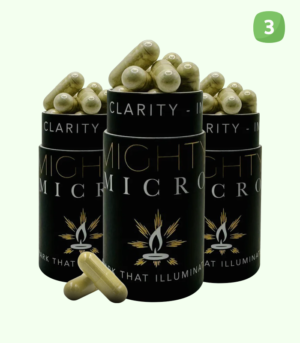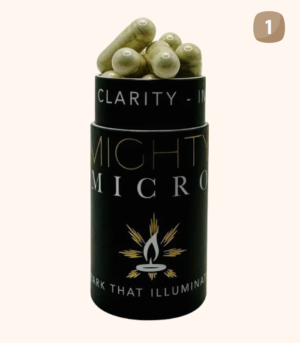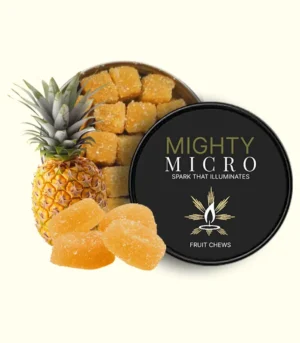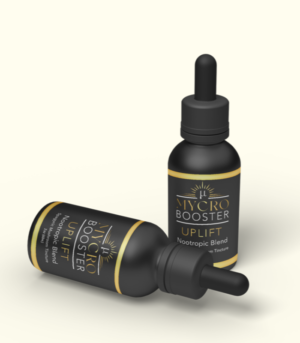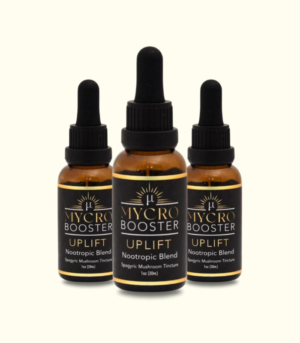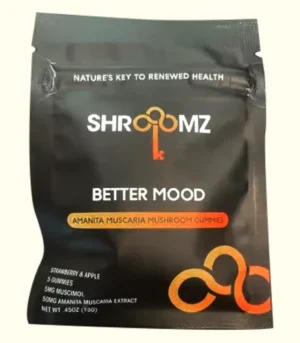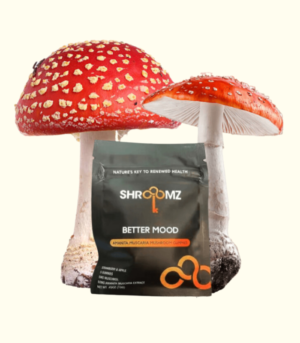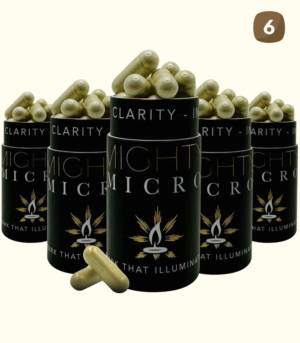In recent years, mushroom therapy has gained considerable attention for its potential benefits in mental health and personal development. Specifically, microdosing psilocybin, the active compound found in certain mushroom species, has become a popular practice among individuals seeking alternative methods to support their well-being. In this article, we will delve into the fascinating world of mushroom therapy, exploring its various benefits and shedding light on its potential impact on mental and emotional states.
What Is Mushroom Therapy and How Does It Work?
Mushroom therapy, also known as psilocybin therapy, is a practice that involves using specific mushroom species containing psilocybin to support mental and emotional well-being. These mushrooms have been used for centuries in various traditional cultures for their spiritual and therapeutic properties. In recent years, mushroom therapy has gained popularity as individuals seek alternative approaches to address mental health challenges and enhance personal growth.
What Is the Historical Background of Mushroom Therapy?
The use of mushrooms for therapeutic purposes dates back thousands of years. Indigenous cultures in Central and South America, such as the Aztecs and Mayans, regarded mushrooms as sacred and used them in religious ceremonies and healing rituals. The psychedelic effects of psilocybin-containing mushrooms were believed to connect individuals with higher realms of consciousness, providing insights and spiritual experiences.
What Is Microdosing and Why Is It Rising in Popularity?
In contemporary times, microdosing has emerged as a popular method within mushroom therapy. Microdosing involves taking sub-perceptual doses of psilocybin, meaning the effects are subtle and not hallucinogenic. This approach allows individuals to experience the potential benefits of psilocybin while avoiding the intense psychoactive experiences associated with higher doses. Many proponents of microdosing report improved mood, increased focus, and enhanced creativity.
What Is Psilocybin and How Does It Affect You?
Psilocybin, the primary psychoactive compound in certain mushroom species, interacts with serotonin receptors in the brain, leading to altered perception, sensory experiences, and changes in thought patterns. The effects of psilocybin can vary depending on the dosage, set (mental and emotional state), and setting (environment). While higher doses can induce profound hallucinations and mystical experiences, microdoses are typically sub-threshold, offering a more subtle and manageable impact.
The Science Behind Psilocybin
In recent years, scientific research into psilocybin has gained momentum, shedding light on its potential therapeutic properties. Studies have shown promising results in the treatment of conditions such as depression, anxiety, addiction, and post-traumatic stress disorder (PTSD). Psilocybin is believed to modulate brain networks associated with mood regulation, introspection, and emotional processing, leading to the observed benefits.
What Are the Safety Considerations for Microdosing Psilocybin?
While psilocybin is generally considered safe when used responsibly and under proper guidance, it’s essential to exercise caution. Individuals with a history of mental health conditions or those currently taking medications should consult with a healthcare professional before engaging in mushroom therapy. Additionally, ensuring the use of high-quality mushrooms sourced from reputable suppliers is crucial to minimize potential risks.
What Are the Benefits of Microdosing Psilocybin?
Microdosing psilocybin has been linked to increased creativity and improved problem-solving abilities. Many individuals report enhanced cognitive flexibility, expanded thinking, and the ability to generate innovative ideas while under the influence of microdoses. This benefit has attracted the attention of artists, entrepreneurs, and individuals in creative fields who seek to unlock their creative potential.
Improved Mood and Emotional Well-being
Microdosing psilocybin has shown promise in alleviating symptoms of depression, anxiety, and mood disorders. Individuals have reported a sense of emotional balance, increased empathy, and an overall improvement in their emotional well-being. Psilocybin’s interaction with serotonin receptors is believed to contribute to these positive shifts in mood and emotional states.
Increased Focus and Productivity
Microdosing psilocybin has been associated with improved focus and productivity. Users often report enhanced concentration, mental clarity, and the ability to stay engaged in tasks for extended periods. These benefits can be particularly valuable for individuals seeking cognitive enhancement, increased productivity, or those looking to overcome creative blocks.
Spiritual and Transcendent Experiences
Microdosing psilocybin has the potential to facilitate spiritual and transcendent experiences. Many individuals describe a deepened sense of connectedness, profound insights, and a feeling of unity with the universe while microdosing. These experiences can be transformative, leading to personal growth, expanded consciousness, and a heightened sense of meaning and purpose.
How Can You Incorporate Mushroom Therapy into Your Wellness Routine?
Finding the Right Dosage
Finding the optimal dosage for microdosing psilocybin is crucial for a safe and beneficial experience. It is recommended to start with a low dose, typically around 0.1-0.3 grams of dried mushrooms, and gradually adjust as needed. Every individual’s sensitivity to psilocybin can vary, so finding the right dosage that provides the desired effects without overwhelming psychoactive experiences is a process of self-exploration.
Setting and Intention
Creating a supportive environment and setting clear intentions is essential when engaging in mushroom therapy. Choose a comfortable and familiar setting where you feel safe and relaxed. Setting intentions helps focus your experience and enhances the potential for personal growth and self-reflection. Consider incorporating mindfulness practices, such as meditation or journaling, to deepen the therapeutic benefits.
Integrating Microdosing with Other Practices
Mushroom therapy can complement various wellness practices and enhance their effects. Incorporating mindfulness, breathwork, yoga, or other mind-body practices alongside microdosing can amplify the transformative potential. It’s important to approach mushroom therapy as part of a holistic approach to wellness, combining it with healthy lifestyle choices, regular exercise, and nourishing nutrition.
Buy Magic Mushroom Online
What Are the Potential Challenges and Precautions of Microdosing Psilocybin?
While mushroom therapy offers promising benefits, it is essential to be aware of potential challenges and take necessary precautions. Some individuals may experience temporary discomfort, such as slight nausea or emotional fluctuations, during the adjustment phase. It is also crucial to avoid driving or engaging in activities that require full attention while under the influence of psilocybin. Open and honest communication with healthcare professionals or experienced guides can provide valuable guidance throughout the journey.
What Are Some Personal Stories of Transformation Through Microdosing?
Real-Life Experiences of Microdosing
Countless individuals have reported profound personal transformations through microdosing psilocybin. From artists finding inspiration to professionals overcoming mental barriers, personal stories showcase the potential of mushroom therapy. These stories provide valuable insights into the diverse range of benefits that microdosing can offer and encourage others to explore the possibilities for themselves.
Testimonials from Microdosers
“I never imagined how much microdosing psilocybin could enhance my creativity. It’s like a doorway to a whole new realm of ideas and possibilities.” – Sarah, Artist
“Microdosing has been a game-changer for my productivity. I’ve noticed a significant improvement in focus and the ability to tackle complex tasks with ease.” – Mark, Entrepreneur
Overcoming Mental Blocks and Limiting Beliefs
Microdosing psilocybin has been credited with helping individuals overcome mental blocks, limiting beliefs, and negative thought patterns. By providing a fresh perspective and facilitating introspection, it can support personal growth and self-discovery. Many individuals have reported breakthroughs in areas such as self-confidence, self-compassion, and emotional healing.
Conclusion
Mushroom therapy, specifically microdosing psilocybin, has shown immense promise in enhancing mental well-being, creativity, and personal growth. By incorporating this natural substance into a holistic approach to wellness, individuals can unlock transformative experiences and tap into their full potential.
As you journey through the world of mushroom therapy, remember to prioritize responsible use, personal safety, and legal compliance. Seek guidance from experienced practitioners or healthcare professionals to navigate this exciting and evolving field. By harnessing the benefits of microdosing psilocybin, you can embark on a path of self-discovery, expanded consciousness, and improved overall well-being.
How long does the effect of microdosing last?
The effects of microdosing psilocybin can vary between individuals. Typically, a microdose can last between 4-8 hours. It’s important to note that the effects are subtle and may not be noticeable to others. The duration and intensity of the experience can depend on factors such as individual metabolism, dosage, and set and setting.
Can microdosing psilocybin be addictive?
Microdosing psilocybin is not believed to be addictive. Unlike addictive substances, psilocybin does not produce physical dependence or cravings. However, it’s essential to approach microdosing with respect and responsible use. Regularly assess your motivations, intentions, and well-being to ensure a healthy relationship with mushroom therapy.
What are the potential side effects of microdosing?
Microdosing psilocybin is generally well-tolerated, with minimal side effects reported. Some individuals may experience mild nausea, headaches, or emotional fluctuations during the initial phase of microdosing. These effects are typically temporary and subside as the body adjusts to the presence of psilocybin. If any concerning or persistent side effects occur, it’s advisable to consult with a healthcare professional.
Can anyone try mushroom therapy?
Mushroom therapy, including microdosing, is not suitable for everyone. Individuals with a history of mental health conditions, such as schizophrenia or psychosis, or those currently taking medications that may interact with psilocybin should avoid mushroom therapy. It is essential to prioritize safety and consult with a healthcare professional before embarking on any new wellness practices.
Is mushroom therapy suitable for treating mental health conditions?
While promising research suggests the therapeutic potential of psilocybin in treating mental health conditions, mushroom therapy should not be considered a standalone treatment. It is crucial to approach mushroom therapy as a complementary practice that can support overall well-being. Individuals with mental health conditions should always consult with qualified healthcare professionals to explore appropriate treatment options.


